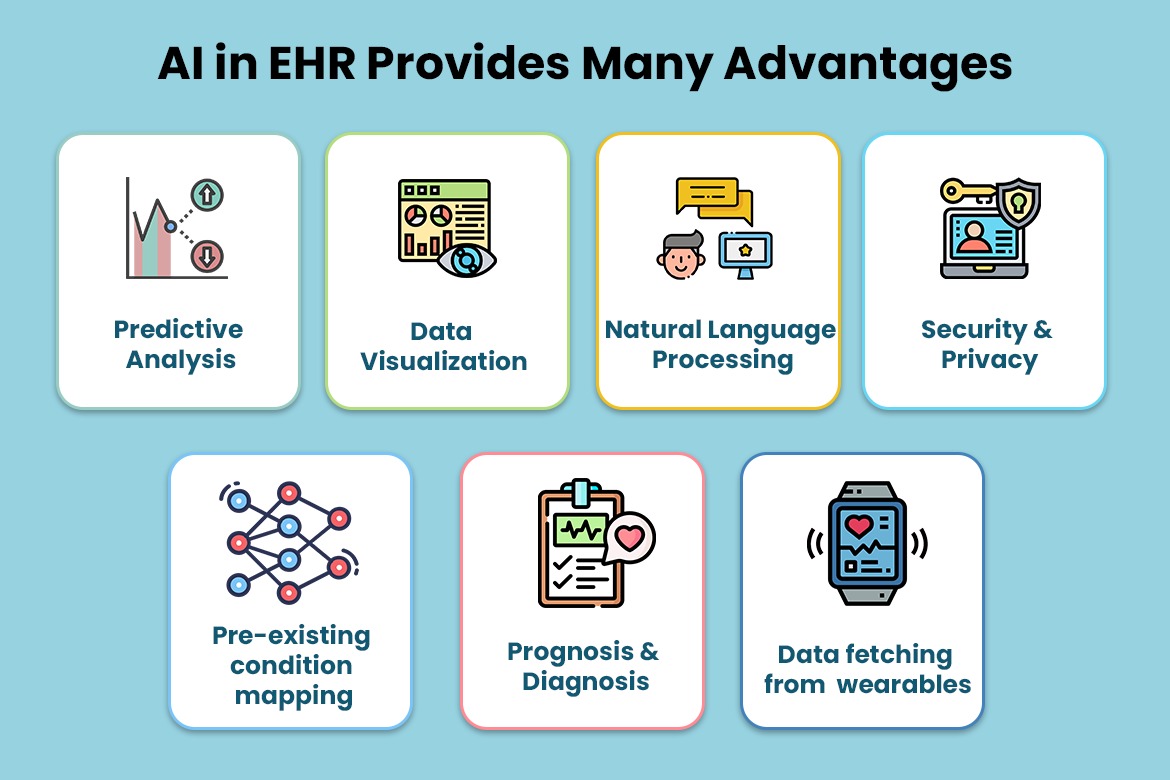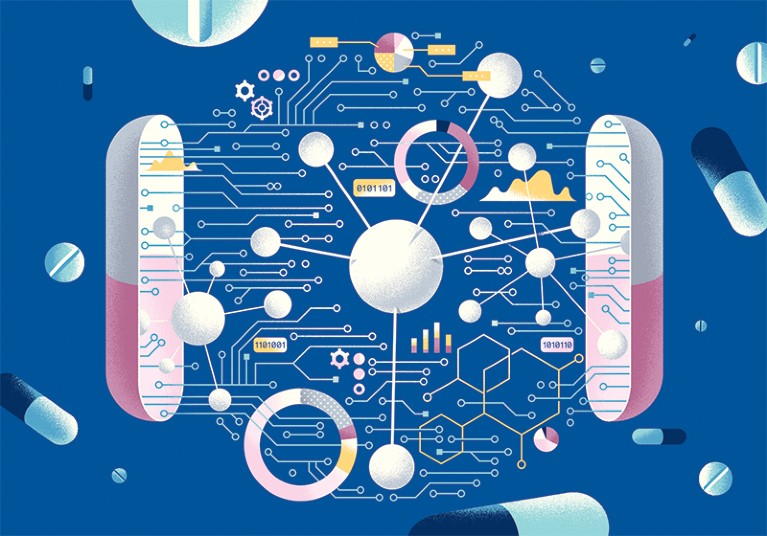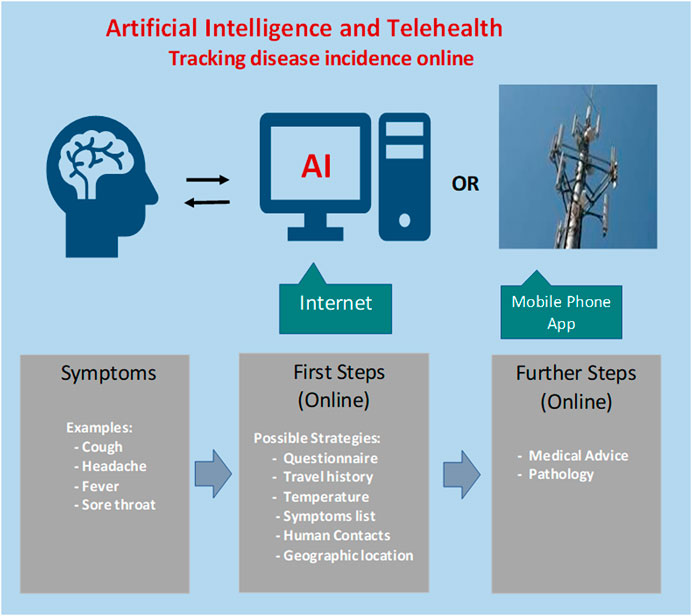Artificial Intelligence (AI) has become an important tool in the healthcare industry, providing innovative solutions that improve patient outcomes, reduce costs, and increase efficiency. In India, AI is being used in various ways to provide better healthcare to people in remote areas and those who don't have access to it. Let's explore the benefits and challenges of AI in healthcare in India in more detail.
Benefits of AI in Healthcare in India:
Telemedicine: AI-powered chatbots and virtual assistants can help healthcare providers triage patients and provide basic medical advice, allowing them to reach more patients and improve access to healthcare. Telemedicine has become a popular way to deliver healthcare services to patients in remote areas.
Disease prediction and diagnosis: AI-powered machine learning algorithms can analyze large amounts of medical data to identify patterns and predict disease risk, allowing healthcare providers to intervene early and provide personalized treatment plans. AI-powered medical imaging is also making strides in India, providing doctors with more accurate and detailed images for diagnosis and treatment planning.

Improved efficiency: AI-powered systems can automate routine tasks such as scheduling, billing, and ordering tests, freeing up healthcare providers to focus on more important tasks. Electronic health records (EHR) are becoming more widely adopted, allowing healthcare providers to access and share patient information more easily.

AI-powered drug discovery and precision medicine: These emerging fields in India offer new possibilities for personalized and effective treatments. AI-powered systems can analyze large amounts of data to identify potential drug targets, allowing for the development of new drugs that target specific diseases.

Addressing the shortage of healthcare professionals: AI can provide virtual support to doctors and nurses in remote areas, allowing them to provide better care to more patients. This can help to address the shortage of healthcare professionals in India and improve access to healthcare.
Challenges of AI in Healthcare in India:
Data privacy and cybersecurity: As healthcare becomes more digital and patient information is shared across multiple platforms, data privacy and cybersecurity become important concerns. Healthcare providers need to ensure that patient data is kept secure and confidential.
Ethical implications of using AI in healthcare: There are concerns about potential biases in AI algorithms and the need for human oversight. AI-powered systems need to be transparent and ethical to ensure that they are used to benefit patients and not harm them.
Lack of standardization: The lack of standardization in healthcare data in India can make it difficult to develop effective AI-powered solutions. Healthcare providers need to work together to develop standards for healthcare data to ensure that AI-powered systems can be used effectively.
Lack of awareness and training: Healthcare providers need to be trained to use AI-powered systems effectively. There is a need to increase awareness about the potential benefits of AI in healthcare and provide training to healthcare providers to ensure that they can use AI-powered systems effectively.
Disease prediction and diagnosis: AI-powered machine learning algorithms can analyze large amounts of medical data to identify patterns and predict disease risk, allowing healthcare providers to intervene early and provide personalized treatment plans. AI-powered medical imaging is also making strides in India, providing doctors with more accurate and detailed images for diagnosis and treatment planning.

Improved efficiency: AI-powered systems can automate routine tasks such as scheduling, billing, and ordering tests, freeing up healthcare providers to focus on more important tasks. Electronic health records (EHR) are becoming more widely adopted, allowing healthcare providers to access and share patient information more easily.

AI-powered drug discovery and precision medicine: These emerging fields in India offer new possibilities for personalized and effective treatments. AI-powered systems can analyze large amounts of data to identify potential drug targets, allowing for the development of new drugs that target specific diseases.

Addressing the shortage of healthcare professionals: AI can provide virtual support to doctors and nurses in remote areas, allowing them to provide better care to more patients. This can help to address the shortage of healthcare professionals in India and improve access to healthcare.
Challenges of AI in Healthcare in India:
Data privacy and cybersecurity: As healthcare becomes more digital and patient information is shared across multiple platforms, data privacy and cybersecurity become important concerns. Healthcare providers need to ensure that patient data is kept secure and confidential.
Ethical implications of using AI in healthcare: There are concerns about potential biases in AI algorithms and the need for human oversight. AI-powered systems need to be transparent and ethical to ensure that they are used to benefit patients and not harm them.
Lack of standardization: The lack of standardization in healthcare data in India can make it difficult to develop effective AI-powered solutions. Healthcare providers need to work together to develop standards for healthcare data to ensure that AI-powered systems can be used effectively.
Lack of awareness and training: Healthcare providers need to be trained to use AI-powered systems effectively. There is a need to increase awareness about the potential benefits of AI in healthcare and provide training to healthcare providers to ensure that they can use AI-powered systems effectively.
Conclusion:
The potential benefits of AI in healthcare in India are enormous, from improved patient outcomes to increased efficiency and reduced costs. However, there are also challenges that need to be addressed, including data privacy and cybersecurity, ethical implications, lack of standardization, and lack of awareness and training. Healthcare providers and policymakers need to work together to address these challenges and ensure that AI is used to benefit patients and improve healthcare outcomes in India. As AI continues to evolve, it is important to keep an open mind and embrace the transformative power of this technology to achieve the best possible outcomes for patients in India and beyond.



No comments:
Post a Comment